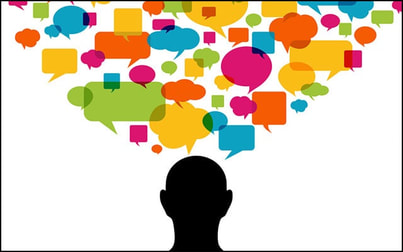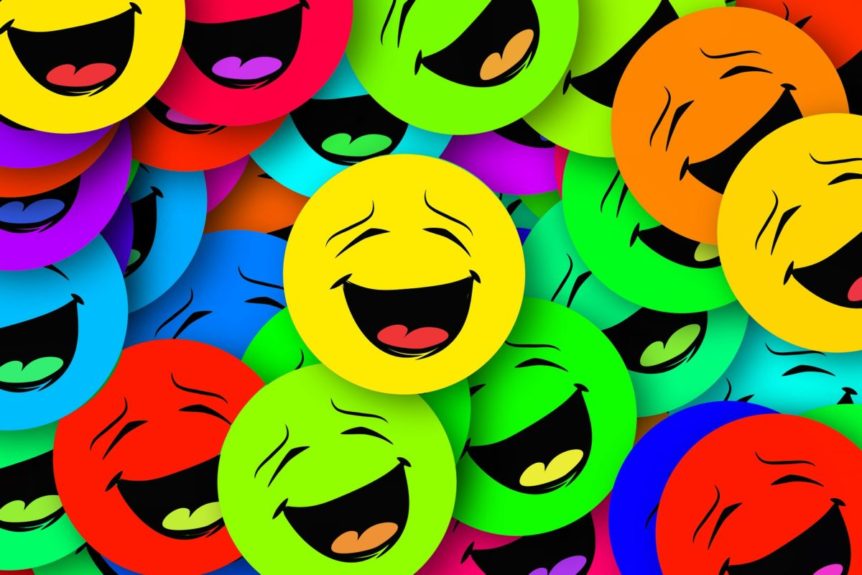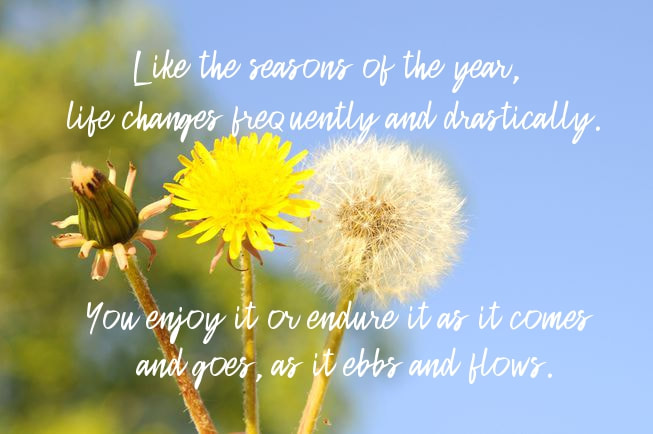When we are in a fearful state of being the brain wants a story. Its main job is to protect us, so if it senses a threat the brain says give me a story, help me to understand what's going on. It wants to know, "Who are the bad guys?" and "Who are the good guys?", so we create a story in our heads about what is happening. According to Brene Brown, "The brain loves a story about bad guys and dangerous things, and in fact if you give it a really good one, it'll reward you chemically. "
Our minds are always thinking...we are a thought factory. We have between 67,000 and 120,000 thoughts per day and most of them are re-runs. Our thoughts create our reality more than anything else. While we can't control what thoughts arise, we can choose how we react. It's our conditioned reactions to our thoughts that quickly influence us and begin to create the story that we tell ourselves.
We think we are our thoughts, our sense of self is created by the stories in our minds and we are very selective about the stories that we choose to play. Making stories up about ourselves and others that we tend not to question, but rather believe.
And most of us tend to ruminate, to replay the same negative stories over and over again in our head. We get stuck in replaying these same old negative stories. Rumination is repetitive, negative thinking about the past, and it's a big factor in sustaining depression.
The more we replay these stories, the deeper the groove becomes in the record in our brain. Neuroscientists tell us that 95% of our thoughts are controlled by our preprogrammed subconscious mind. Instead of actually thinking, you’re looking at a “movie” of the past. Our habit is to lay over the top of the present moment our past experience.
Resilience play a key role in our ability to lead a happy life. People with high levels of resilience ask themselves, "The story I'm telling myself is?" and then get curious about the answer. Try this anytime you are feeling threatened. Lead with it when you are entering into a difficult conversation about how you are feeling. It forces you to examine what your internal dialogue is and present it to the other person to see if it’s what they intended. It's an open-hearted, honest, brave and vulnerable way to address a situation and your thoughts and feelings about it.
Most of the time the story we have made up and are telling ourself isn't an accurate one. Be brave, courageous and pause to challenge your stories, to get curious about them. Frequently ask yourself, "What is the story that I am telling myself about this?" and be willing to look at it with perspective.




 RSS Feed
RSS Feed
